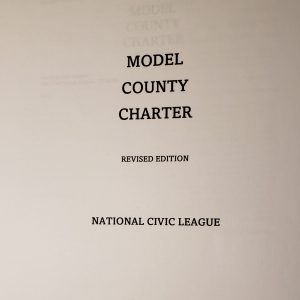The Minnehaha County Commission has been fighting with the county auditor for over a year. Her performance has been criticized as disappointing, unprofessional and embarrassing. The problems began even before voters, in their wisdom, chose her in the June 2022 Republican primary over a well-qualified professional who had been appointed to the office.
While this dispute might provide fodder for the press, it underscores the need to address fundamental operational shortcomings in the structure of our county’s government.

The real issue is that county jobs like the auditor’s should be filled by appointment, not election. The responsibility for selecting the most proficient candidates for line supervisory roles, which demand specific education and training, should rest with the county administrator or the county commission. Voters lack the means to choose the most capable register of deeds, treasurer, or auditor.
The State’s Model for County Operations Doesn’t Fit Larger Counties
South Dakota counties are structured and operate in accordance with state law. But it’s a one size fits all model that doesn’t fit our large county well. With roughly a quarter of the state’s population, Minnehaha County would be better served by a more flexible approach.
Electing Department Heads Who Supervise Staff Makes No Sense
Minnehaha County is required by state law to fill many department head positions by election. But that doesn’t make sense. Most department heads who supervise staff should be hired based on their education, training and experience, not elected based upon their political connections. The exceptions many feel make sense are the offices of sheriff and state’s attorney. In those cases, politics necessarily are involved.
The state’s model stipulates that counties elect five commissioners (legislators), a sheriff, a state’s attorney, a treasurer, an auditor and a register of deeds. Inattentive voters are somehow supposed to evaluate the professional qualifications of the people running for all of those positions.

By contrast, the county commission appoints or hires the county administrator, the director of equalization and the director of human resources. That approach makes more sense when filling department head positions.
More Local Control
South Dakota’s statutes include numerous detailed rules on how local governments should operate. But those rules don’t always seem appropriate. Which is why the state’s constitution gives cities and counties the ability to adopt home rule charters to provide more freedom to operate in ways that make sense for their unique circumstances. Home rule permits increased local control.
Home Rule Governments Work Well in South Dakota
Home rule charters have been successfully adopted in Sioux Falls, Aberdeen, Brookings, Watertown, Pierre and five other South Dakota cities. The city of Sioux Falls has thrived under the home rule government adopted by voters in 1994.
Voters got rid of a system where city commissioners were elected to fill supervisory and management positions, just like in our county government today. That approach did not work well. Underqualified people ran and were sometimes elected.
The county tried to adopt a home rule charter a couple decades ago. But the proposal reportedly failed because it wasn’t energetically promoted by county leaders or the business community. It’s time to try again and to do it right this time.
National Civic League’s Model County Charter

National Civic League’s Model County Charter
The county commission has the authority to approve a charter and put it on the ballot for voters to consider. Using the National Civic League’s model home rule charter as the starting point, they could basically duplicate how things now operate, except that voters would fill fewer elected positions. That reduction would likely be the county’s main initial benefit, but they will probably also eventually find other efficiencies from the increased local control.
Time for County Leaders to Act
While Sioux Falls city government is relatively well-funded, Minnehaha County has struggled to make ends meet. Minnehaha County commissioners work hard to adequately fund many of the county’s important functions. So, for years I and others have suggested that they adopt a home rule charter to improve the efficiency of operations. But nothing has happened. The timing has never been right for those with the power to initiate change. Maybe this dispute with the auditor will finally get things moving in the right direction.
Thank you- I wasn’t aware of this before
Yes, Constitution allows for both Counties and Cities to adopt home rule charters. And I have thought about why not one county has a charter or home form of government. And the issues being raised as of late, explains why not one county has ever done so. I do not know if I want to change the county format, but I would be open to discussions.